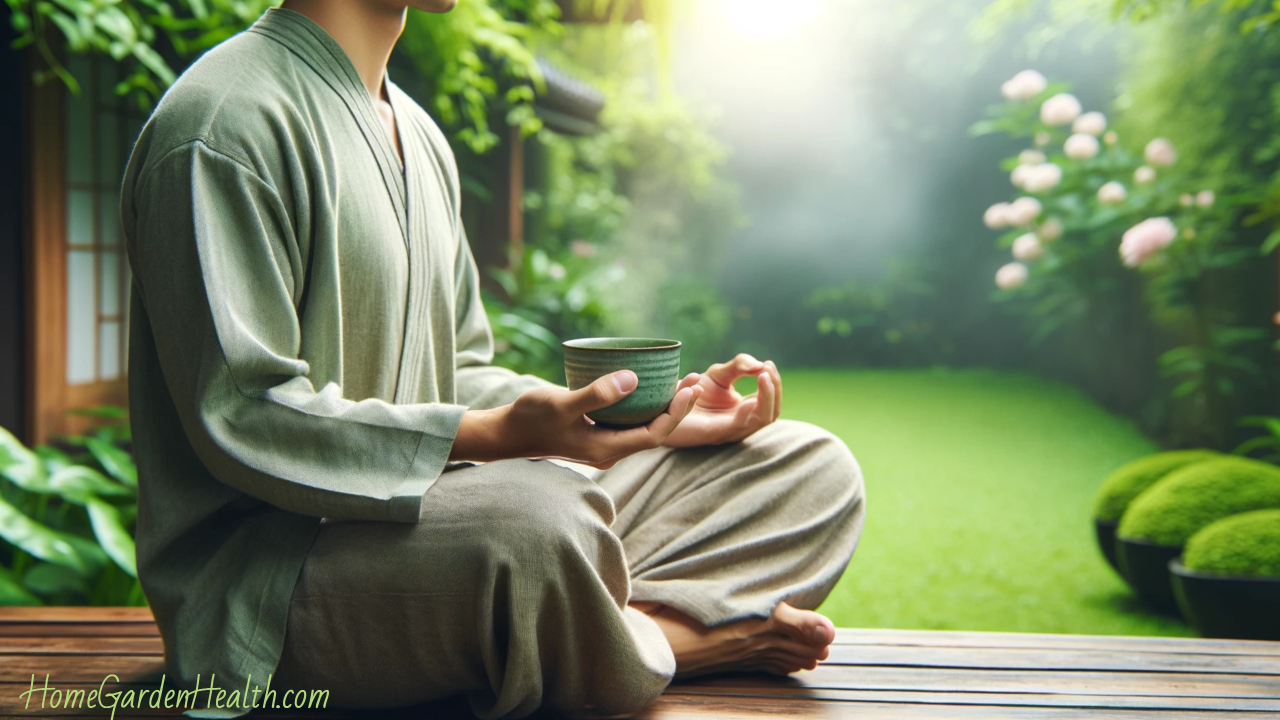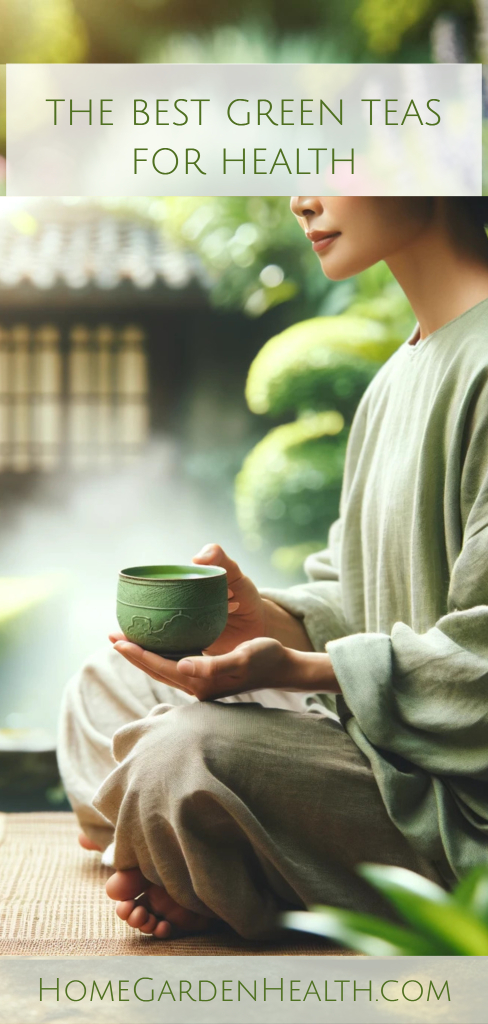
Green tea is revered worldwide for its delightful flavor and well-documented health benefits. Whether you are a seasoned tea drinker or a newcomer, understanding which varieties of green tea best support health can enhance your experience and contribute to your wellness. In this article, we’ll explore the best green teas for health and answer some common questions about what makes green tea a beneficial part of your diet.

Green Tea: Why Is It Good for You?
Green tea has a rich history that dates back thousands of years, originating in ancient China. According to legend, green tea was discovered by Emperor Shen Nong in 2737 BCE when a tea leaf accidentally fell into his pot of boiling water. Impressed by the pleasant aroma and refreshing taste, the emperor began to explore the medicinal properties of this newfound beverage. Green tea quickly gained popularity among the Chinese elite, celebrated for its health benefits and its role in various cultural and religious ceremonies.
The cultivation and consumption of green tea spread to Japan around the 9th century, thanks to Buddhist monks who traveled to China and brought tea seeds back with them. In Japan, green tea became an integral part of the Zen Buddhist tradition, with monks using it to stay alert during long meditation sessions. The Japanese tea ceremony, known as “chanoyu” or “sado,” evolved from these practices, emphasizing mindfulness, simplicity, and the art of tea preparation. Over the centuries, green tea’s popularity continued to grow, reaching different parts of Asia and eventually the Western world, where it is now appreciated for both its delicate flavor and numerous health benefits.
Green tea offers numerous health benefits that make it a popular choice among health-conscious individuals:
- Rich in Antioxidants: Green tea is loaded with polyphenols like flavonoids and catechins, which function as powerful antioxidants.
- Supports Brain Health: It contains compounds that can improve brain function and protect against neurodegenerative diseases.
- Enhances Fat Burning: Its ability to boost the metabolic rate makes green tea an ally in weight loss efforts.
- Cardiovascular Health: Regular consumption is linked to reduced risks of heart disease.
Green Tea: Which Is Best?
Choosing the best green tea depends on personal taste and the specific health benefits you are seeking:
- Matcha: Offers the highest concentration of antioxidants because it is made from ground whole tea leaves.
- Sencha: Known for its balance of sweetness and astringency, ideal for everyday consumption.
- Gyokuro: Has a sweeter flavor due to being shaded before harvest, rich in theanine.
- Silver Needle: Made from only the buds of the tea plant, it is high in catechins.
How Much Caffeine in Green Tea?
- Varies by Type: Typically, green tea contains about 15-75 mg of caffeine per cup.
- Factors: Steeping time and the temperature can affect caffeine content—hotter and longer increases it.
How Long to Steep Green Tea?
- Temperature and Time: Ideal steeping temperature is between 150°F to 180°F, and time should not exceed 2-3 minutes to avoid bitterness.
- Experiment: Adjust steeping times based on personal preference for strength and flavor.
What Is Green Tea Matcha Powder?
- Whole Leaf Powder: Matcha is a fine, stone-ground powder made from whole green tea leaves, which increases its nutrient content.
- Preparation: Traditionally whisked with hot water to form a frothy drink.
- Versatile Use: Can be used in lattes, smoothies, and baking.
How Much L-Theanine Is in Green Tea?
- Concentration: Generally contains about 20 mg of L-Theanine per cup, with higher amounts in shaded teas like Gyokuro.
- Benefits: L-Theanine promotes relaxation without drowsiness and enhances focus.
Why Green Tea Is Healthy?
- Beyond Antioxidants: It supports digestive and liver health, reduces inflammation, and can improve skin health.
- Oral Health: Its catechins can kill bacteria and inhibit viruses like influenza, potentially reducing the risk of infections.
How Much Green Tea Should I Drink a Day?
- General Recommendation: 3-5 cups per day are commonly recommended for optimal health benefits without overconsuming caffeine.
- Individual Tolerance: Adjust intake based on personal caffeine tolerance and health conditions.
How Many Calories in Green Tea?
- Calorie Content: Pure green tea contains virtually zero calories.
- Additives Matter: Calories can increase with the addition of sweeteners or milk.
Can I Drink Green Tea When Pregnant?
- Moderation is Key: Limit intake to about 2 cups per day due to caffeine content.
- Consult a Doctor: Always consult with a healthcare provider regarding diet during pregnancy.
How Much to Drink Green Tea for Weight Loss?
- Effective Dosage: Drinking 3-5 cups daily can aid in enhancing metabolism and increasing fat burn.
- Consistency and Lifestyle: Combine with a healthy diet and regular exercise for best results.
In conclusion, selecting the best green teas for health can vary based on your personal health goals and taste preferences. From boosting metabolism to enhancing mental clarity, green tea offers a range of benefits that cater to a healthy lifestyle. By understanding how to choose and use green tea effectively, you can maximize these benefits and enjoy a refreshing, healthful addition to your daily routine.
FAQ: Best Green Teas for Health
What makes green tea beneficial for health?
Green tea is packed with antioxidants, such as catechins and flavonoids, which help reduce oxidative stress and inflammation in the body. It also supports brain health, aids in weight management, improves heart health, and boosts metabolic rate.
Can green tea help improve brain function?
Yes, green tea contains compounds like caffeine and L-theanine, which have been shown to enhance brain function. These substances can improve aspects of cognitive function, including improved mood, vigilance, reaction time, and memory.
How does green tea contribute to weight loss?
Green tea boosts metabolic rate in the short term, making it a useful drink for weight management. Its main active ingredient, caffeine, helps in fat burning by improving exercise performance.
Is green tea good for skin health?
Yes, the antioxidants in green tea are beneficial for skin health. They help protect against sun damage and reduce the signs of aging by decreasing wrinkles and increasing skin elasticity.
How can I choose the right green tea for maximum health benefits?
To choose the best green tea for health:
- Matcha is great for a high antioxidant intake as you consume the entire leaf in powdered form.
- Sencha offers a balance of antioxidants with a pleasant taste, suitable for daily consumption.
- Gyokuro is rich in theanine and has a sweet taste, making it great for stress reduction.
What is the best way to brew green tea to preserve its health benefits?
To best preserve the antioxidants and flavor:
- Use water between 150°F to 180°F.
- Steep the tea for 2-3 minutes maximum to avoid releasing excessive tannins which can make the tea bitter.
Are there any side effects of drinking green tea?
While green tea is safe for most people, it contains caffeine, which can cause insomnia, nervousness, or upset stomach in some individuals, especially when consumed in large amounts.
Can everyone drink green tea?
Most people can safely enjoy green tea. However, individuals with caffeine sensitivities, pregnant women, or those who take certain medications should consult with a healthcare provider due to the caffeine content.
How much green tea is too much?
Drinking more than 5 cups of green tea per day may lead to side effects due to high caffeine intake. Stick to 3-5 cups per day to balance the benefits and potential risks.
Can I drink green tea on an empty stomach?
Drinking green tea on an empty stomach can lead to stomach upset for some people due to its acidity and caffeine content. It is recommended to drink green tea between meals or with food if you have a sensitive stomach.
Like to learn more about health benefits of Tea? check out our article “Immune Boosting Tea – Boost Your Defenses with these 7 Natural Teas”


